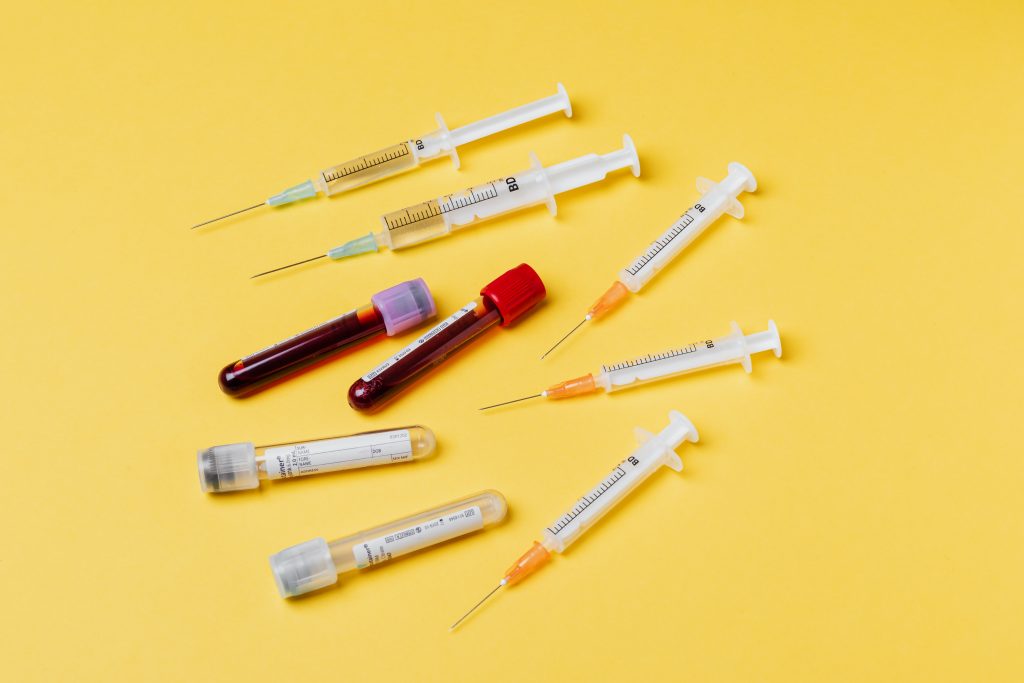Substance Abuse Treatment

11 Minutes
CONTENTS
Addiction is completely curable, and its effective treatment exists in many forms, depending on the level of care you require. There is a broad range of substance abuse treatment and programs available for you or your loved one. However, to make the most out of this treatment, it is important to find out which one best suits you and your personal circumstances. Ideally, you must look for a program that provides individualized care while taking care of all your needs. Understanding the different types of substance abuse treatment can help you or a loved one take the first step toward long-term recovery and sobriety.

Drug and alcohol treatment programs are available in different forms, each with its own duration of time, depending on the level of care and the patient’s recovery needs. An addiction specialist usually considers different factors while determining the right program for a person. Regardless of the type of program they choose, it is imperative that the chosen treatment type offers personalized care.
Some factors commonly taken into consideration while choosing a type of addiction program include:
- The type of substance used
- The duration of substance use
- Living situation
- Individual mental and physical health needs
- Presence of any work-life issues
- Other social factors, including relationship troubles
Addiction treatment is not only about stopping drug or alcohol use with detox programs and withdrawal management. Instead, it also includes learning how to maintain the newly-acquired sobriety while developing skills that help lead a healthier and happier life without using drugs.
Mentioned below are some common types of addiction treatment programs that clients commonly participate in to achieve sobriety in the long run.
Residential or inpatient substance abuse treatment takes place in a dedicated facility where people stay overnight throughout the duration of their program. Depending on individual needs and goals, clients may choose to enter a program for 28, 30, 60, or 90 days. The duration and intensity of treatment in inpatient programs differ depending on client needs. Some common elements of an inpatient addiction treatment program include:
- Medically-supervised detoxification process
- Individual and group therapy
- Treatment for co-occurring disorders
- Medication management
- Mutual support groups
- Aftercare planning
- Sober living arrangements
Depending on the luxury rehab choice, some facilities offer additional services as a part of their residential treatment program. These services include access to pools, spas, fitness centers, and saunas. Moreover, others offer holistic therapies like meditation, yoga, acupuncture, art and music therapy, and more.
An outpatient treatment plan for substance abuse allows patients to visit the rehab center to receive therapy and care while living in their own homes. These programs require everyone to receive therapy and care at the facility for several hours. These hours vary from one patient to another, depending on their individual needs and the care they require. Some common outpatient services include:
- Detox
- 12-Step groups
- Individual and group therapy
- Lega, social, and vocational services
- Drug addiction therapies
These programs generally suit those who wish to continue their job, education, or home duties while recovering from an addiction. On the other hand, for those with long-standing addiction struggles, co-occurring mental health disorders, or physical concerns, experts recommend a more intense level of inpatient or outpatient care.
Intensive Outpatient Programs refer to outpatient addiction treatment for people who need more support and structure than a typical outpatient program offers. It also serves as an appropriate step-down level of care for people who have completed residential treatment for their addiction. A person who opts for IOP usually attends treatment for 9 to 19 hours per week.
IOP programs for substance abuse disorder focus on the person’s psychiatric, medical, and psychological needs. In addition to this, some common IOP services include:
- Individual, group, and family counseling
- Occupational therapy
- Educational groups
- Medication-assisted therapy
- Behavioral therapy
- Multiple skilled treatment services
A partial hospitalization program (PHP) is a type of outpatient care that is slightly more intense than an IOP. It is suitable for specific psychiatric or medical care requiring extra support and supervision. People on this level of substance abuse treatment attend treatment for 20 hours per week. The services offered as a part of a standard PHP address the psychological, medical, toxicological, emergency, and psychiatric needs.
Both 12-Step programs and mutual support groups help addicts practice abstinence while working on the recovery process by connecting them with a network of people with shared experiences. While these groups are not an alternative to formal addiction cures, they are crucial for complementing a comprehensive treatment plan. These programs aim to build a community of support by encouraging all participants to attend regular meetings and share their experiences and insights. The 12-Step recovery programs also embrace spirituality while working on the 12 steps that help them embrace the presence of God and use it to help in recovery. There are two different types of addiction support groups practicing the 12-Steps framework, including:
- Alcoholics Anonymous
- Narcotics Anonymous
For those who do not wish to seek help from these programs, some rehabs also have non-12-Step addiction programs and support groups as an alternative.
Dual diagnosis programs are a common element of substance abuse treatment at most rehabs across the US. Also known as co-occurring disorders programs, they focus on clients struggling with substance abuse and mental health conditions. For example, someone which opiate addiction with a simultaneous diagnosis of major depression can benefit from dual diagnosis treatment. These treatment programs tend to address both issues simultaneously to help patients through recovery.
Surveys suggest that about 17 million people in the United States struggled simultaneously with a substance abuse disorder and a co-occurring mental issue in 2020. These statistics suggest that people with mental health disorders are more likely to misuse substances like drugs and alcohol, highlighting the importance of dual-diagnosis treatment programs.
Detoxification is one of the most crucial addiction therapy techniques to help individuals recover and maintain sobriety. The process involves cleansing the body of substances so that healing can truly begin. Many people develop uncomfortable and potentially dangerous withdrawal symptoms during this treatment phase. To manage these symptoms before they take a toll on overall health, experts recommend going through a medically-supervised detox at a certified addiction facility.
The FDA has approved some medications for certain types of drugs and alcohol to ease their withdrawal symptoms while managing their cravings. For example, people going through alcohol detox may benefit from disulfiram to reduce alcohol cravings.
Behavioral addiction therapies are a common part of many rehabs as they allow patients to learn how to stop their addiction to drugs and alcohol in the long run. These therapies are a regular part of every addiction recovery program and work by allowing clients to recognize why they have been misusing substances. Moreover, some of these therapies also equip them with skills to identify and avoid all high-risk relapse situations while letting them practice coping mechanisms to manage cravings.
Addiction therapy can take place in different settings and may include:
Individual therapy is a type of therapy in which a patient works one-on-one with a certified therapist. This therapy provides the most personalized care while fostering a strong patient-therapist relationship. As a part of individual therapy, a therapist may use cognitive behavior therapy, motivational enhancement therapy, and contingency management to yield benefits.
- Group therapy includes working towards recovery along with a group of peers who are going through similar struggles. This type of therapy creates a support group where members acknowledge each other’s struggles and regularly provide support and encouragement to one another
- Family therapy allows the loved ones of a person struggling with addiction to understand their struggles better and provides them an opportunity to repair their relationships
FAQs
How can I help my loved one seek substance abuse treatment?
If you know someone struggling with an addiction, you may feel confused about how to help them out. While you cannot force someone to help for substance abuse, you can certainly provide them support. If your loved one is already willing to get treatment, you can help them by researching all drug and alcohol programs nearby or offering to accompany them as they visit these rehabs. On the contrary, if your loved one is hesitant to seek help, do not try to force anything on them but continue offering them love and support. Sometimes, you can seek help from a professional interventionist who can arrange a group meeting between you and your loved one, along with other family members and friends, where you can convey your concerns to them in an amicable environment.
How effective are the conventional addiction treatment strategies that most rehabs use?
Research believes that people who join drug or alcohol addiction treatment programs and undergo different professional strategies are more likely to find recovery. Multiple factors contribute to how effective a treatment strategy can be, including the length of treatment, the types of therapy it includes, and the quality of interaction between clients and their treatment providers. Some positive benefits that you may expect to experience by trying out different addiction treatment strategies include the following:
Reduced criminal activity
An improved sense of overall wellbeing
Decreases substance use or even complete abstinence
Healthier relationships
Better functioning in everyday life
How long does a rehab center for addiction to over-the-counter drugs last?
There is no set time for treatment for addiction to over-the-counter (OTC) drugs since every person moves through the process of recovery at a different rate. However, research generally supports spending longer time in treatments, i.e., at least three months or more, to get better outcomes. Some factors that may determine the duration of rehabilitation for OTC drug addiction include the severity of addiction, the presence of co-occurring disorders, and personal willingness to change.
How much will it cost to get substance abuse treatment?
Different factors affect the total cost of addiction treatment, such as:
Whether you are seeking treatment on an inpatient or an outpatient basis
Insurance coverage
The duration of treatment
The preferred level of care
Location of rehab
Medications used during treatment
Amenities that the treatment facility offers
A substance abuse inpatient rehab is generally more expensive than outpatient treatment as the former involves living on-site and availing different services, like meals, accommodation, and 24/7 supervision.
What is a luxury substance abuse rehab center?
A luxury substance abuse rehab is an addiction treatment facility that goes above and beyond to ensure that clients live comfortably with various 5-star facilities. The levels of these rehabs may vary, but almost all of them are likely to include private accommodation with premium interiors and lavish bedding, an upscale treatment facility, and five-star meals prepared by gourmet chefs. Some of these rehabs that offer substance abuse treatment for executives, like celebrities and politicians, even have private villas that come with a personal chef, driver, therapist, and concierge. Almost all luxury addiction rehabs have housekeeping to tidy up the accommodations as clients immerse in other luxuries at spas, massage centers, fitness studios,and pools. Most luxury rehabs follow animal-assisted therapy, such as equine therapy, a common trend to help clients achieve healthy emotional regulation and personal responsibility.
HOW THE BALANCE CAN HELP WITH Addiction
The Balance RehabClinic is a leading provider of luxury addiction and mental health treatment for affluent individuals and their families, offering a blend of innovative science and holistic methods with unparalleled individualised care.
A UNIQUE METHOD TREATING Addiction
a successful and proven concept focusing on underlying causesOur program consists of treating only one client at a time individually designed to help you with all the problematic aspects of your life. All individual treatment sessions will be held at your private residence.
more infoYour program is designed based on your personal needs. The team will exchange daily information and adjust the schedule as we go. Our therapists will work with you treating the root causes and not just the symptoms and goes beyong your stay to ensure lasting success.
more infoOur biochemical imbalance can be affected by diet and stressful life events, but it often goes back to genetics and epigenetics. We do specific biochemical laboratory testing to determine an individual’s biochemical imbalance. Combining the results of the lab tests with anamnestic information and clinical tests, we prescribe an individualized and compounded vitamin, mineral, nutrient protocol to help recover from various disease states.
more infoOur experts combine the best from psychological treatment, holistic medicine to support you individually and providing complementary therapies all coordinated from one source working complementing each other integrative.
more infoUsing latest cutting-edge technology-based therapies such as Neurofeedback, tDCS, and SSP, we can track the biological patterns of your body, giving us valuable insight into your health and well-being as well support your brain and body performance and recovery with neuromodulation.
more infoComplex trauma is often a key factor to distress mental and physical state. The Balance provides a safe space along integrated trauma treatment methods to enable healing.
more infoAddiction TREATMENT LASTING APPROACH
0 Before
Send Admission Request
0 Before
Define Treatment Goals
1 week
Assessments & Detox
1-4 week
Psychological & Holistic Therapy
4 week
Family Therapy
5-8 week
Aftercare
12+ week
Refresher Visit
Addiction Insights
latest news & research on Addiction
Addiction Rehab for Teens
Many parents who believe their adolescent may have a drug or alcohol issue are at a loss on where to begin.
read moreLuxury Addiction Treatment
The effectiveness of behavioral therapy for addiction treatment is determined by the individual undergoing treatment, their ability to engage in the treatment
read more
Substance Abuse Counselor
A substance abuse counselor is also called an addiction counselor. As alluded to earlier in the introduction, a substance abuse counselor is a professional who is in charge of the substance abuse counseling process
read more

































































